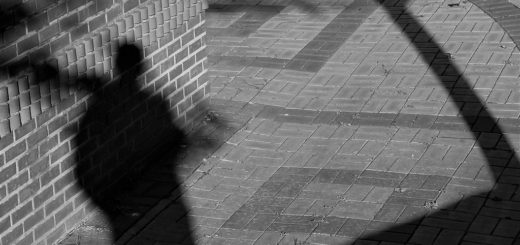On Needing a Drink
I recently wrote about Van Morrison’s courageous, legacy-endangering “No More Lockdown” songs, celebrating the sanctity of natural rights and condemning the tyrannical government expansions being imposed in the name of public health. I also explained that the only famous musician to answer Morrison’s call for allies in this daring project was Eric Clapton. Allow me to add one consequential note: Neither man drinks.
What is a coward? A man whose fear of losing his material well-being ultimately overwhelms his concern for the good. To be courageous, then, requires, among other things, a fundamental willingness to part with mere material comforts — including one’s reputation, the approval of friends, and general acceptance within the status quo world, aka the establishment. The people we typically identify as cowards display their excessive fearfulness in overt ways. However, there is no reason to doubt that a quiet, largely unacknowledged form of cowardice is latent in far more men than those few who display the vice in its most flamboyant forms. In fact, this is to be assumed, since of course daily life rarely presents opportunities for overt displays of character on a scale that would be visible to most others.
In its latent, quiescent forms, cowardice is found not in radical acts of surrender, or the abandonment of one’s post, but in commonplace acts of clinging too hard to one’s material well-being at the expense of spiritual goods, of needing the comforts of fellow-feeling and “belonging” so much that one would sacrifice higher goods to maintain one’s place in normal life, one’s seat at the table. And the morally compromising call of one’s comfortable seat at society’s table is made infinitely louder and more incessant by emotional dependence on habit-forming, readily-available social pleasures such as those provided by alcohol. Drinking, in the dominant sense entailed in expressions such as “the drinking culture,” “going out for drinks,” or “having a few drinks,” is one of the great tethers attaching men to the body, which means detaching them from the vital interests of the soul. Drinking fosters and fuels excessive concern with material comfort, diminishes the independence and clarity of reasoning (not only during the activity, but also in memory and anticipation), and weakens the individual to the allure of the undifferentiated collective’s acceptance — the attachment you feel, in principle, to anyone who will pour a glass for you, or with whom you have “bent elbows.”
I have observed in the past that one of the reasons Donald Trump, an inveterate idiot, was nevertheless able to stand so intransigently against the Washington congressional establishment was that he is a non-drinker, and therefore not tied, emotionally, to the secret camaraderie of fellow drinkers that in the end overrides all mere differences of political principle. The essence of our modern political “old boys clubs” — as John Boehner has recently gone to great lengths to exemplify — is largely bound up with the endless rounds of shared drinks after the day’s arguments are done. The drinker is a man who loves his body too much, who needs his comforting pleasure too much, and who therefore has a constant vested interest in not “going too far” in his rebelliousness, knowing that at the end of the day the joy of fitting in, of being part of society’s great soiree, the communal nightcap, must never be risked.
Van Morrison (seventy-five) and Eric Clapton (seventy-six) are men with personal histories of heavy drinking, as well as serious drug addiction in Clapton’s case, who have since forsaken their compromising weakness and become stronger, i.e., more spiritually centered, men. They do not feel the pull of the next round; their seat at society’s table therefore means less to them than it means to those tied to the collective by the trivial, thought-distorting pleasures of substance abuse. In short, they see the value of freedom, and the hell of tyranny, with clearer eyes than most — with eyes unclouded by the chemically-induced need for social belonging, the comfort of “normalcy.” So those two old men stood up, while millions of young and “healthy” people hid their heads and mewled about how irresponsible and dangerous it is to question the government’s claims, or to reject the state’s arbitrarily asserted powers. This is how far “the free world” has fallen. But at least we can stay home and get drunk over it, right?
Sobering times, indeed.



